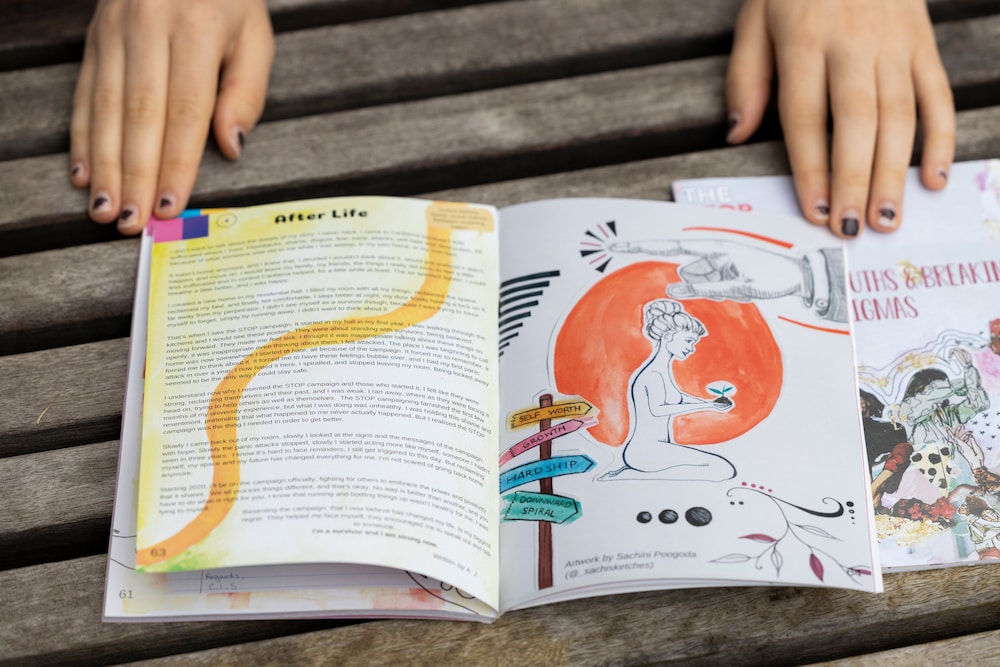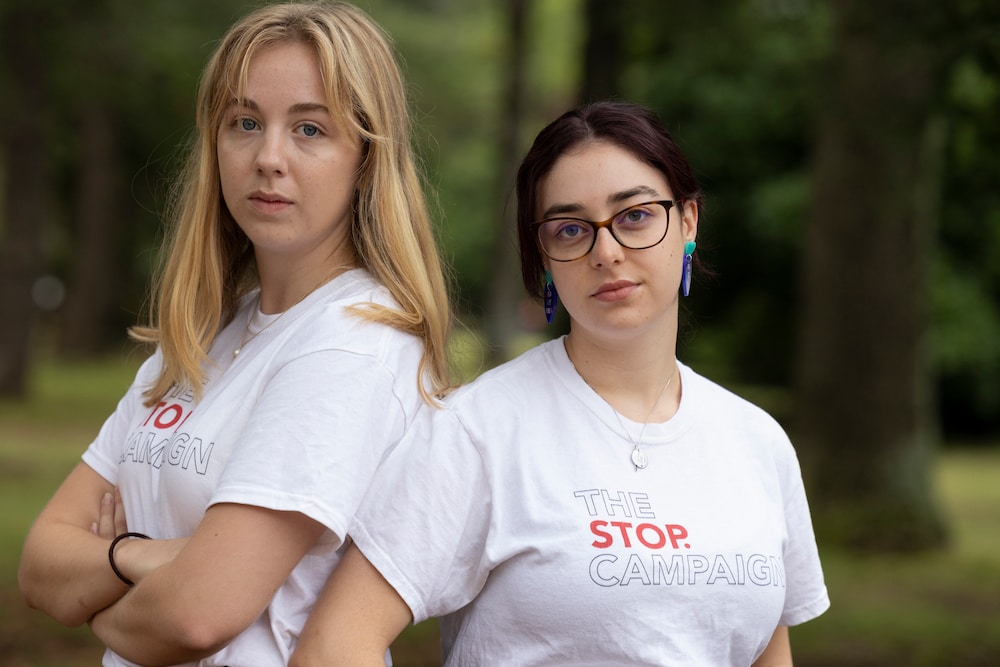Readers are advised that this article contains discussions of sex, sexual assault and rape culture.
Envisioning a world where Australian universities are free from sexual violence and stigmatisation, The STOP Campaign began in Canberra with the mission of creating positive change through education and empowerment.
Founded in 2018 by Camille Schloeffel, an Australian National University (ANU) alumna who noticed the university was lacking support and resources for sexual violence prevention and education, the Campaign aims to create and sustain positive change by igniting conversations and breaking down stigmas surrounding all aspects of sex and sexual violence.
Advocating for sexual assault survivors to be heard on campus, many of the Campaign’s members are from the ANU, however the ultimate goal is to spread the message Australia-wide, creating conversation about sexual violence at universities and ultimately changing university policies.
Campaign manager Bianca Nicotra said The STOP Campaign has grown significantly since its beginning.
“Camille started the campaign from within her Hall to let people know that it was an important issue and something that needed to be focused on,” Ms Nicotra said.
“It all started from one student almost three years ago, and now we are an official not-for-profit with more than twenty passionate volunteers.”
“I was actually there in that College when it started, so I was exposed to it in my first year … I identify as a survivor myself and so for me it was a very serious, important issue that was very close to my heart.”
Lead events coordinator Audrey Mims also noticed that something was missing from ANU’s policy surrounding sexual violence and joined the Campaign to help survivors feel empowered and safe. Ms Mims is leading The STOP Campaign’s Empowerment Program, a six-week program designed to provide a safe space for cisgender and transgender women and non-binary people in the community. The pilot program commencing in February aims to cultivate growth, foster empowerment, and build a supportive community.
“I think it’s an ambitious program but it’s something that has been created out of a need in the community because we didn’t have a program like this. We see it as really important and vital to the success of young people at university and it’s something we need to overcome; this stigma and this lack of empowerment for survivors,” she said.
“Our main goal is for survivors to be believed and for them to feel empowered and respected,” Ms Nicotra said.
The Empowerment Program is open to cisgender and transgender women and non-binary people, who identify as victim-survivors, aged between 18 and 25. The pilot includes six in-person sessions and online engagement in between, covering six important themes: wellbeing, activism, advocacy, networking, support seeking confidence building, and leadership skills.
“We’re talking about confidence, leadership, creativity, passion and self-care,” Ms Mims said.
“We’re hoping to have around 15 participants and we’re still very much advertising and looking for participants in the community who might be interested … We’re really hoping to branch out into other portions of the community, whether that be 18-year-olds in high school, people at the University of Canberra or people who aren’t studying.”
Each week will also include an hour of self-defence skill building, facilitated by Canberra Aikido.
Ms Nicotra said since The STOP Campaign began, several people have come forward to thank the members for giving them a voice.
“I think that ANU just doesn’t speak openly enough. From our experiences being within a College and seeing the type of things that go on inside, it’s very hard to look at the policy ANU has and respect it or fully understand it … We live, eat, study and breathe in this building and a lot of things happen there that the policy just doesn’t account for,” Ms Nicotra said.
“ANU needs to listen to students more, because we are the ones with the perspective and the experience of what goes on inside the College walls and they simply do not know what’s going on.”
In 2019, ANU introduced the Respectful Relations Unit (RRU) to implement University policy surrounding sexual assault and harassment. According to the ANU Sexual Violence Prevention Strategy 2019-2026, the RRU was established in January 2019 by ANU as part of the University’s response to the Australian Human Rights Commission’s Change the Course – A National Report on Sexual Assault and Sexual Harassment at Australian Universities 2017 which reported 51% of Australian university students were sexually harassed on at least one occasion in 2016. The Unit oversees the development of whole-of-university policy and strategies to deal with sexism, sexual assault and sexual harassment on campus.
However, both Ms Nicotra and Ms Mims believe survivors do not feel heard.
“Our mission is about working to support individuals, especially survivors in our community, through de-stigmatization and empowerment. In this way, we operate outside of what the RRU and University do in terms of policy within the Colleges and Halls,” Ms Nicotra said.
“We definitely have seen a great interest from the Colleges in getting us in to talk to their residents, which we feel is a sign the University is lacking in creating those programs where they are educating the residents.”

Along with directing survivors to appropriate services for help, advice and education, the Campaign publishes zines and videos series sharing the stories of survivors, their experiences, their struggles, and their perspectives.
According to Ms Mims, a significant number of people aren’t aware that there’s a problem with sexual violence and stigmatisation on university campuses until introduced to the Campaign.
“There’s a need for improvement and a cultural shift needs to be made in attitudes of students and young people in terms of sex and awareness around sexual violence,” she said.
“This issue is not unique to ANU. A lot of the people connected with The STOP Campaign are from the ANU so we speak to our experiences with the University, but you can look anywhere in the world and see that there are issues with living on campus.
“There’s not adequate sexual education in high school, and for a lot of people the only things that they see about university are in movies that promote rape culture and party culture. You get to university and you want to replicate what you’ve seen because it seems really glamorous and romanticised and it can often be quite devastating.”
For more information, visit www.stopcampagin.org.au or @thestopcampaignaus.
For more Community:



